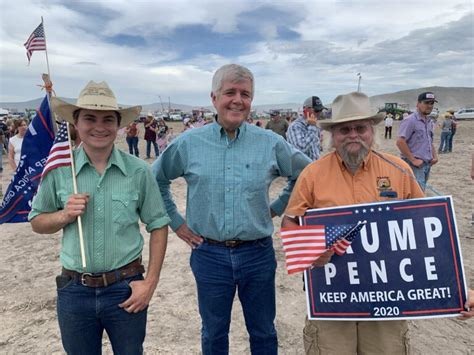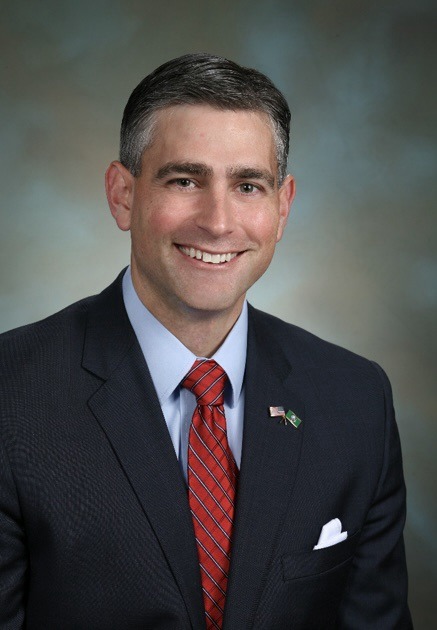Representative Cliff Bentz, the Republican lawmaker for Oregon’s 2nd Congressional District, has recently been confronted with intense public criticism during a series of town hall meetings. The events, intended to provide constituents with an opportunity to voice their concerns, have been marked by overflow crowds and hostile interactions. Bentz, who has been serving in the U.S. House since 2021, faced vociferous backlash from attendees, many of whom voiced their frustration with both federal policies and the handling of local economic issues.
At a February 19 town hall held at Eastern Oregon University in La Grande, the atmosphere was tense. Nearly all 435 seats in the McKenzie Theater were filled, with a significant number of constituents forced to stand in the aisles or crowd outside the doors. As Bentz began his presentation, he was frequently interrupted by attendees who were angry over various policy matters, particularly federal cuts to agencies like the Forest Service. The interruptions grew louder as attendees voiced their dissatisfaction with the direction of the federal government under the Trump administration.
Bentz attempted to address these concerns by discussing the need for deficit reduction and government streamlining. However, his efforts were met with sharp criticism. The crowd, in particular, expressed their frustration by chanting “tax the wealthy” and “tax the billionaires” as Bentz outlined fiscal policies he believed would reduce the national deficit. Despite his attempts to explain his position, it became clear that his message was falling on deaf ears, as the crowd’s anger seemed rooted in deeper concerns about income inequality and federal spending cuts.
Bentz supposed that many of the attendees were ‘current or former federal employees’ and questioned whether their views were truly representative of the broader public.
The situation reached a boiling point when one constituent, a former federal employee, accused the representative of being out of touch with the needs of the working class. The woman, who had been laid off from her position with the Forest Service, demanded an explanation for the federal government’s recent workforce reductions. Bentz, perhaps caught off guard by the intensity of the questioning, suggested that she look into joining a class-action lawsuit, a comment that only fueled the crowd’s growing sense of frustration.
The following evening, Bentz’s town hall in Pendleton took on a similarly charged atmosphere. The representative faced a largely unfriendly crowd, and the hostility escalated as the town hall progressed. Many in the audience expressed concerns over the mass firings of federal employees and the implications of these cuts on local communities. One former federal worker, who had recently lost her job, voiced her anger over what she saw as the government’s neglect of its workers and the local economy.
As Bentz navigated the increasingly hostile environment, he attempted to steer the conversation back to his view of the broader issues at play, including the need to reduce the federal deficit. However, the crowd remained focused on more immediate concerns, such as the loss of local jobs, the reduction of public services, and the erosion of trust in federal leadership. The growing tensions between Bentz and his constituents were emblematic of a larger national conversation about the state of the federal workforce and the policies being implemented under the current administration.
Throughout the evening, Bentz faced repeated heckling and calls for him to address issues related to the Trump administration’s policies directly. One woman, in particular, questioned him sharply about how his positions aligned with the federal government’s treatment of public sector workers. Bentz, undeterred, tried to explain his stance on government efficiency, but his responses did little to calm the increasingly vocal crowd.
Following the town hall, Bentz remarked that many of the attendees were current or former federal employees, questioning whether their views were truly representative of the broader public. He suggested that many of the concerns raised in the meetings were more reflective of the frustrations of those who had lost their jobs or were directly affected by federal budget cuts. This remark, however, was not well received, as many in the audience felt their concerns were being dismissed as unimportant or isolated.
The contentious nature of these town halls is part of a larger trend affecting Republican lawmakers across the country. With the Trump administration pushing aggressive policies aimed at reducing the size of government and cutting back on public services, many constituents are feeling the sting of these changes. In town halls across the nation, lawmakers like Bentz are encountering fierce criticism and are struggling to reconcile their positions with the growing discontent among their voters.
Bentz’s town halls are also indicative of a wider political climate in which public officials are facing increased pressure to address issues of inequality, government spending, and federal employment. As lawmakers are forced to confront the consequences of federal policies on the ground, the rhetoric surrounding these issues has become increasingly polarized. In the case of Oregon’s 2nd Congressional District, Bentz’s town halls have highlighted the deep divisions within his constituency and underscored the challenges facing Republican lawmakers in an era of heightened political tension.
As the town halls in La Grande and Pendleton demonstrate, the political climate in Oregon—and much of the country—has shifted. Lawmakers like Cliff Bentz, who have historically represented more conservative viewpoints, are now grappling with constituents who are deeply disillusioned with current government policies. These town halls serve as a reminder that, even in relatively conservative areas, public dissatisfaction with the status quo is palpable and growing.





